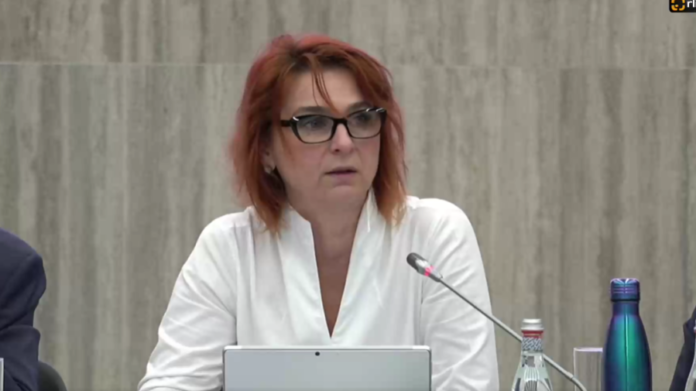The Republic of Moldova has taken a decisive step toward strengthening its informational resilience. At the conference “Mapping the Factors and Incentives of FIMI Related to Elections in the Republic of Moldova”, Ana Revenco, Director of the Center for Strategic Communication and Disinformation Combat, presented a detailed plan to create a proactive national architecture for informational security — the first of its kind in the region.
Revenco emphasized that Moldova must shift from reaction to prevention as hybrid threats and information manipulation become key tools of foreign influence.
“Information manipulation and foreign interference occur constantly, not only during elections. This is a permanent front line. We must build an architecture that protects democracy every day, not just once every four years,” said Revenco.
A Regional Model for Responding to Information Warfare
Over the past two years, Revenco’s Center developed and tested several tools that now form the core of the national information resilience system. The Center presented them during the conference:
- The Strategic Communication Concept 2024–2030 defines five pillars for state action to combat disinformation.
- The National Information Resilience Index measures the “temperature” of society and guides public policy.
- The first public report details the tactics and methods of manipulation used by Russia in Moldova’s information space.
- The Map of Vulnerabilities and Resilience Objectives identifies the sectors most exposed to information attacks and the key areas where resilience must grow.
To operationalize the national system, the Center created several instruments, including an Independent Fund to Support Free and Professional Journalism, backed by development partners, with an initial budget of around €4 million.
It also established an interinstitutional communication cell that unites 11 public institutions — a first in Moldova — to ensure rapid and coordinated responses during information crises. The Center issued sectoral policy recommendations to reduce vulnerabilities and strengthen resilience.
⸻
From Reaction to Prevention: A Four-Level Architecture
- Strategic Direction – sets priorities and policy frameworks.
- Monitoring and Analysis – identifies hostile actors and internal vulnerabilities.
- Institutional Capacity-Building – provides training, intervention guides, and interagency cooperation.
- Operational and Anticipatory Response – ensures data-driven, fast, and coordinated action.
Revenco underlined that this approach combines defensive and offensive measures to ensure long-term resilience.
⸻
Priorities for 2025: National Mechanism, Media Literacy, and Digital Partnerships
In the short term, the Center plans to finalize the national mechanism for responding to information manipulation, publish the 2025 Threat Forecast to guide sectoral actions, and expand media education programs for public servants, educators, and the justice system.
It also plans to strengthen cooperation with digital platforms to counter coordinated online campaigns more effectively.
“The Center’s role is not to issue instructions but to ensure coherent action and direct resources toward areas where we can make a real difference,” said Revenco.
⸻
Moldova – A “Laboratory of Democratic Resilience” at the EU’s Eastern Border
As an EU candidate state and a frontline democracy at Europe’s eastern border, the Republic of Moldova positions itself as a “laboratory of resilience” in the face of Russian influence. Its interinstitutional cooperation model and civil society engagement in defending the information space can serve as a regional precedent when disinformation has become a global strategic weapon.
“The next information battle will focus not on who spreads a narrative faster, but on who builds deeper trust,” concluded Ana Revenco.
The Center organized the event in Chisinau as part of the conference “Mapping Election-Related FIMI Factors and Incentives in the Republic of Moldova: Report Launch.”
More information about the strategies developed by the Center can be found on the website stratcom.md.


